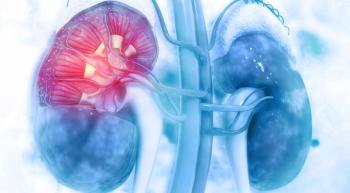
Dr. Hirshfield Discusses Screening Patients for Genetic Mutations
Kim M. Hirshfield, MD, PhD, medical oncologist, Stacy Goldstein Breast Cancer Center, Rutgers Cancer Institute of New Jersey, discusses selecting individuals to screen for genetic mutations and the challenges of better selecting patients to screen.
Kim M. Hirshfield, MD, PhD, medical oncologist, Stacy Goldstein Breast Cancer Center, Rutgers Cancer Institute of New Jersey, discusses selecting individuals to screen for genetic mutations and the challenges of better selecting patients to screen.
Hirshfield says there are guidelines for identifying individuals that should be screened. These recommendations are based on personal history, family history and even heritage. However, Hirshfield says it is likely that some individuals that should get screened do not due to a lack of knowledge of which familial syndromes lead to genetic predispositions for cancer.
With the integration of genomic testing, researchers are starting to find alterations in genes that have not been previously identified, Hirshfield says. While genomic testing doesn’t tell researchers if a patient has a genetic predisposition to a familial cancer, it does give them a hint of who to screen.
Hirshfield says genomic testing is important because it can influence the treatment, screening, and other health maintenance for not only the patient, but also for their family members.
Newsletter
Knowledge is power. Don’t miss the most recent breakthroughs in cancer care.


































